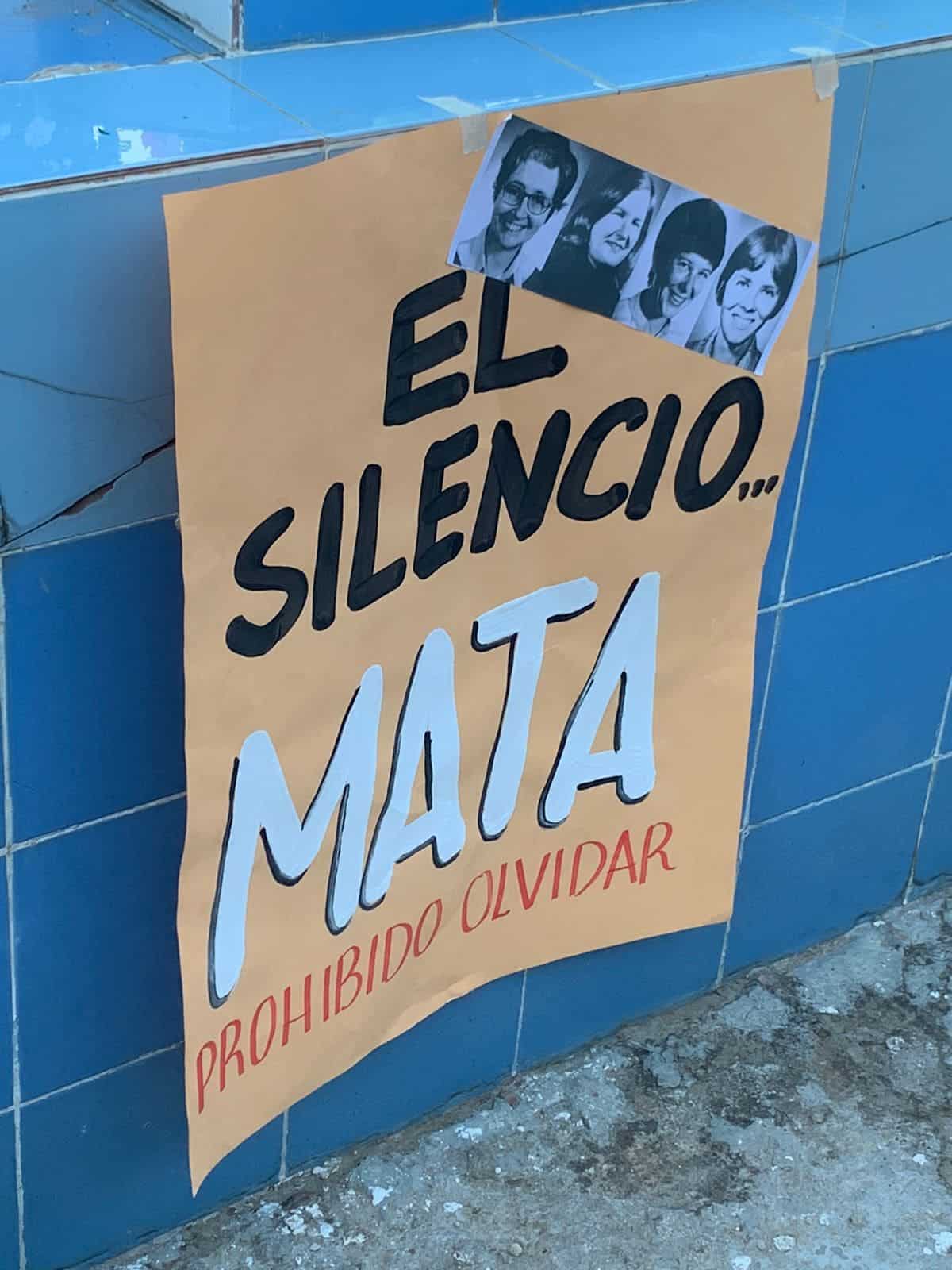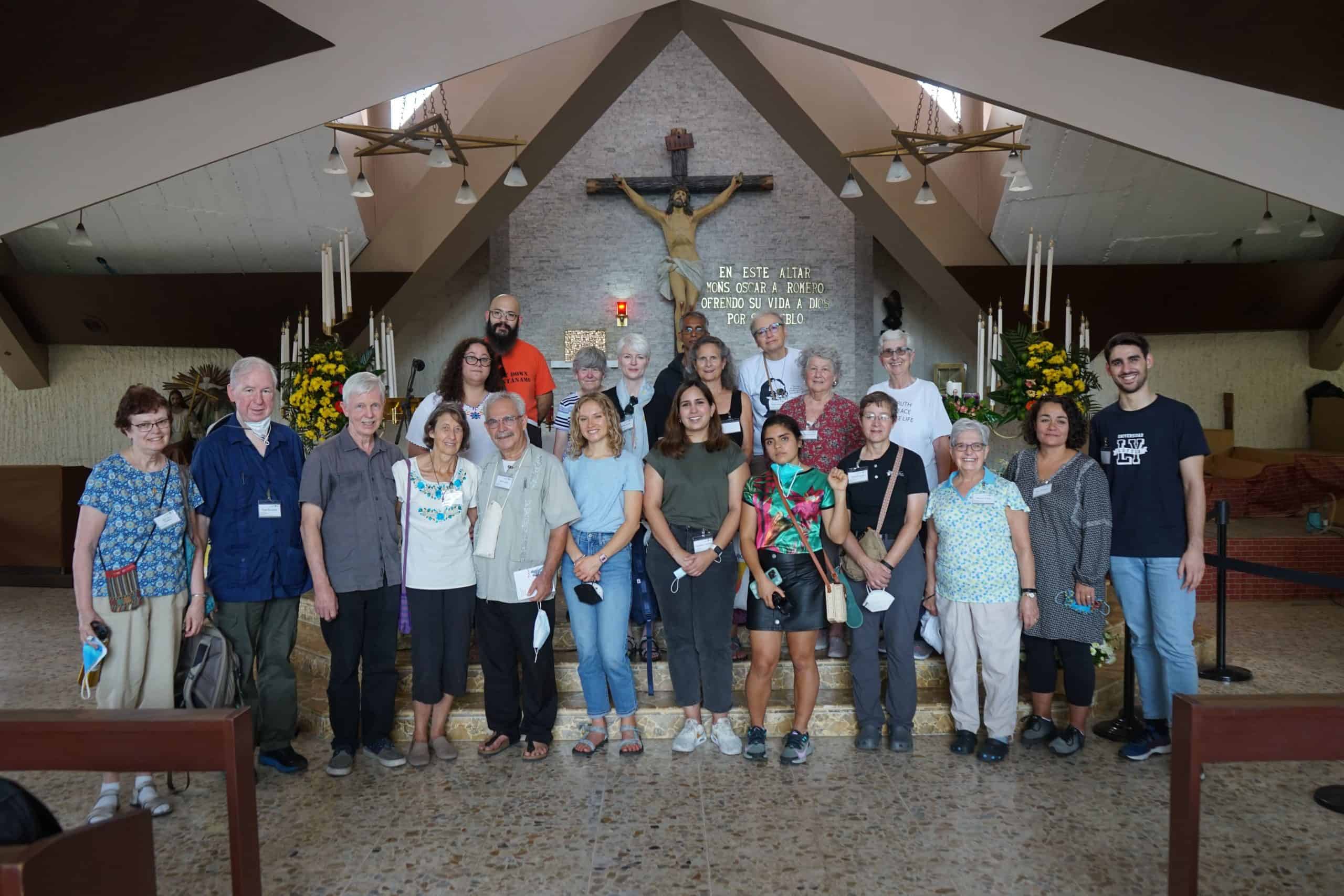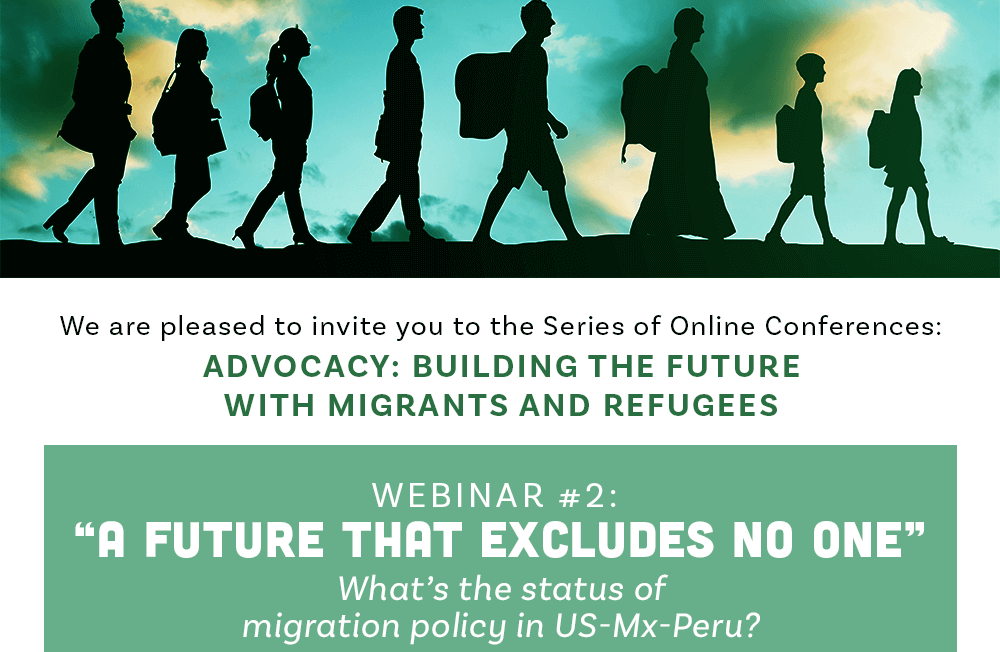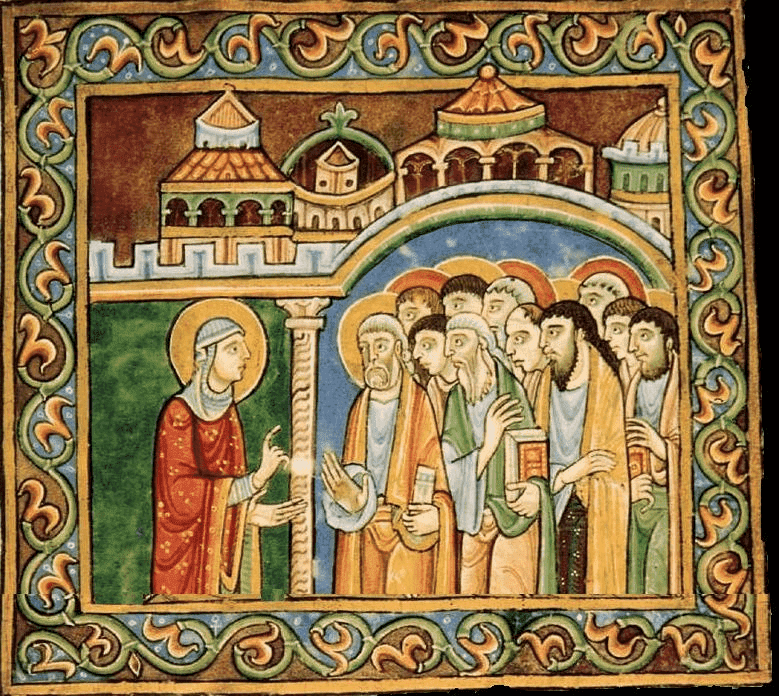El Salvador – a country where the wounds of the past seem not to have healed and where memories and fears of past decades (harassment of defenders and activists, criminalization of youth, the militarization of public security, imposition of capitalist development, privatization and exploitation of resources as the only way to “get ahead”) still prevail in the memory and daily life. Learning about the work and legacy of the Catholic Church in the country was energizing.
But why did the Migrant, Immigrant, and Refugee Network CCVI (MIRN) come to San Salvador? The SHARE Foundation is a non-profit organization that accompanies El Salvador and Honduras communities. It seeks to generate cooperation between the diaspora in the United States and those who remain in the countries of origin on sustainability, justice, and human rights. Annually they organize delegations where people from Mexico and the United States can visit El Salvador and get to know the local organizations and communities with which the Foundation works. This year, the theme of the trip was to celebrate the memory of Maryknoll sisters Maura Clarke and Ida Ford, Ursuline sister Dorothy Kazel and lay missionary Jean Donovan and their work in La Libertad and Chalatenango, as well as to speak with family members of victims of the military repression and violence of 1980 and the present. MIRN saw a valuable opportunity to continue learning about the root causes of migration and locals’ efforts to achieve social justice and to continue networking with actors and sisters involved in the care, protection, and integration of migrants, asylum seekers, and refugees.
Although the current Salvadoran government has tried to portray an image of a perfect, modern, and developed country, organized civil society and the Church do not forget and remain alert. The regime of exception has been extended for more than nine months and conditions individual guarantees of the most vulnerable sectors of the population. Facing it and in fear of persecution -direct and digital-hundreds of people risk their lives and freedom to keep alive the words of Saint Romero:
“The Church, the defender of the rights of God, human dignity, and person, cannot remain silent before such an abomination. We want the government to face the fact that reforms are valueless if they are to be carried out at the cost of so much blood. In the name of God, in the name of these suffering people whose cries rise to heaven more loudly each day, I implore you, I beg you, I order you in the name of God: stop the repression. (Homily in the Cathedral – March 23, 1980).
Maura, Ita, Jean, and Dorothy were women committed to the Salvadoran people, especially Chalatenango and La Libertad communities. Monsignor Romero called them to the country. They came to advocate for those who had been unjustly detained, teach the community’s children to read and write and accompany the Salvadoran women in their daily lives. They were aware of the danger looming closer to their small community. Still, their love and dedication to the Salvadoran people were more significant than their fear. They were intercepted by agents of a Salvadoran death squad, tortured, killed, and buried on the side of a road.
“Several times, I have decided to leave El Salvador. I almost could except for the children, the poor bruised victims of this insanity. Who would care for them? Whose heart would be so staunch as to favor the reasonable thing in a sea of their tears and helplessness? Not mine, dear friend, not mine.” (Jean Donovan’s letter to a friend).
The civil conflict, which began in 1980 and ended in 1992, is estimated to have resulted in around 75,000 deaths.
So why should visiting El Salvador be considered an energizing experience? Because the message of social justice, human dignity, and peace of the four women and Monsignor Romero live on. One of the initiatives we want to share with you, which fills us with hope and admiration, is that of the women of Chalatenango. Under the mentorship of SHARE Foundation, ProVida, and CCR (a community organization), the women have become producers, entrepreneurs, and community leaders.
They are women concerned about the health of their families, the care of the land, and the food sovereignty of their communities, keeping alive the history and traditions of their communities through the care and sowing of native and creole seeds, particularly corn. Women who recognize the importance of the land and of working on development alternatives while facing the exploitation and extractivist model promoted by the government. Women who have become community leaders, watching over the health and well-being of their neighbors, and building a community network that seeks to confront the regime of exception.

These women who still speak fondly of Jean, Dorothy, Ita, and Maura, because they recognized the divine in each person and gave their lives defending their commitment to the victims of the military regime.
But corn is not the only thing that has flourished in the region. The memory of Monsignor Romero and Maryknoll sisters Maura and Ida, Ursuline sister Dorothy and lay missionary Jean are still present in the spirit of the community. The Salvadoran government thought that burying these brave women would frighten and silence those who opposed them. They never considered that the four women would become seeds. These seeds blossomed and inspired an entire community to survive and resist.
 The memory of San Romero, Ita, Maura, Dorothy, and Jean calls us to engage with people in contexts of vulnerability and to show compassion and solidarity with those who flee and are victims of human rights violations. A call to dedicate ourselves to building a world where human rights and dignity take precedence over political interests and borders.
The memory of San Romero, Ita, Maura, Dorothy, and Jean calls us to engage with people in contexts of vulnerability and to show compassion and solidarity with those who flee and are victims of human rights violations. A call to dedicate ourselves to building a world where human rights and dignity take precedence over political interests and borders.
To learn more about the Share Foundation’s work and how to support: http://www.share-elsalvador.org/
On the header, “Rosas en Diciembre” 2023 Delegation.









0 Comments